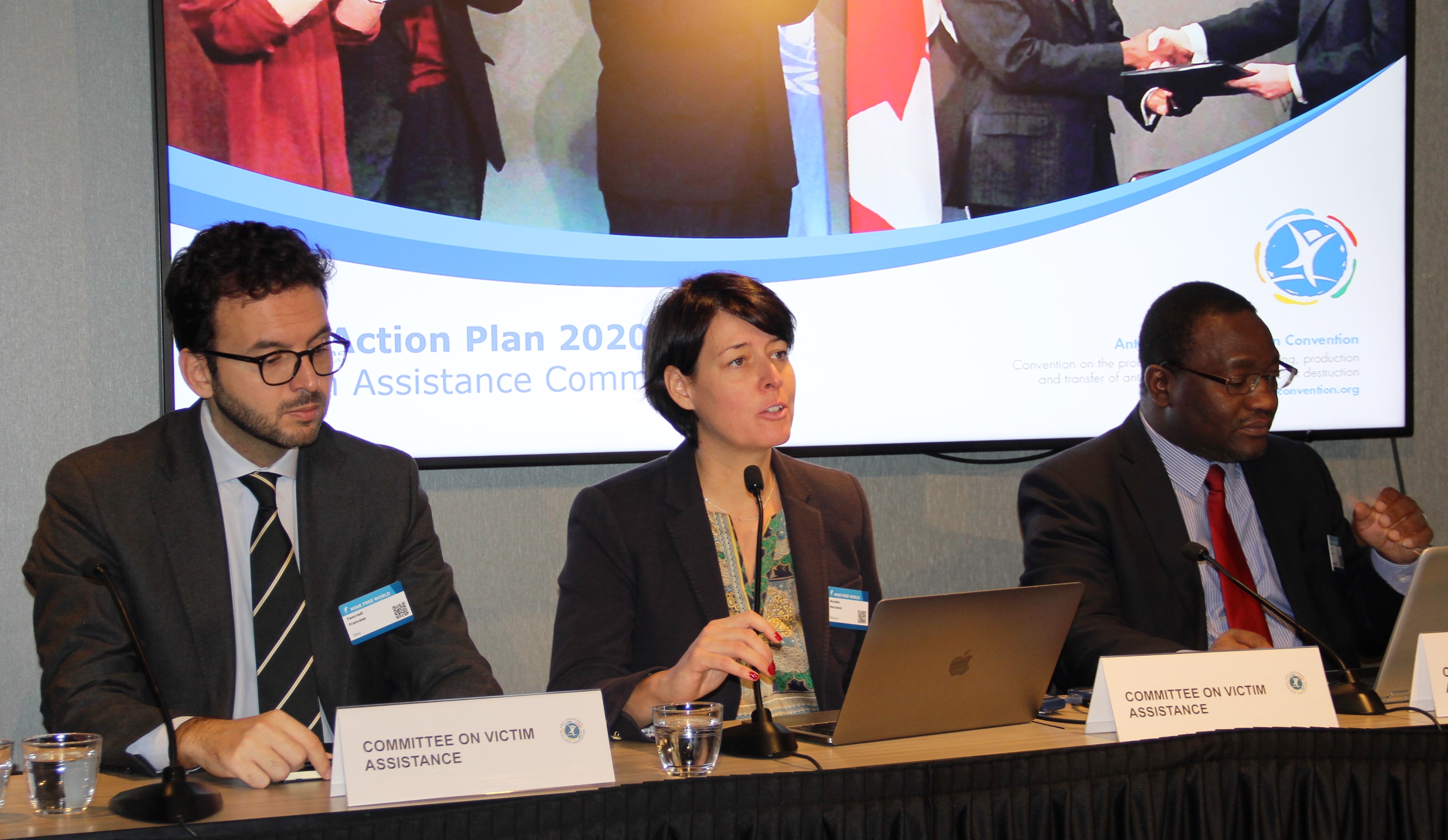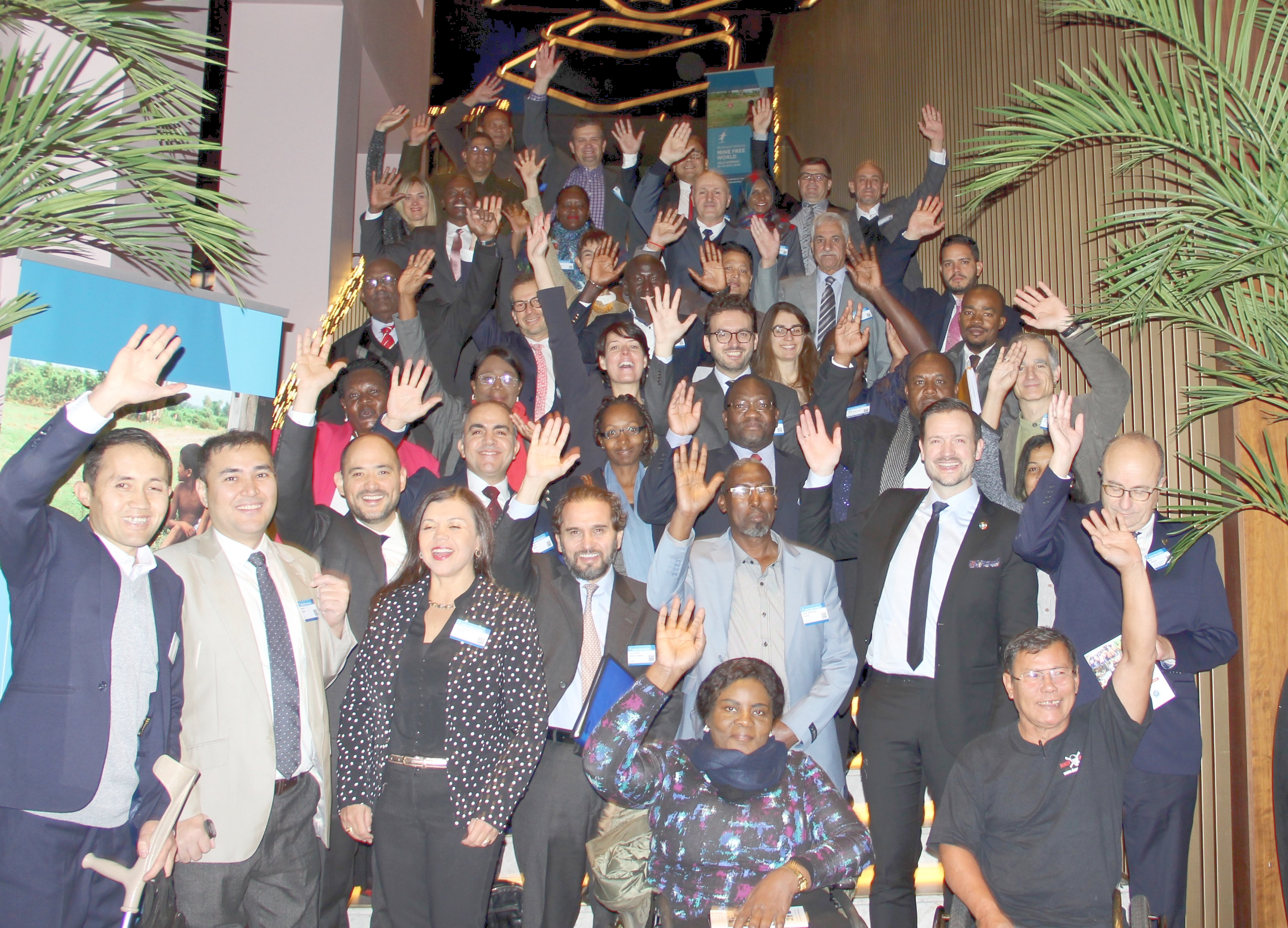|
25.11.2019
Oslo, 25 November 2019 – Over 700 delegates are now in Norway for the world’s global anti-landmine summit of the Mine Ban Convention a diplomatic treaty that bans anti-personnel mines and calls for assistance to the victims of these weapons. The meeting, convened under the name the Oslo Review Conference on a Mine-Free World, takes place 25-29 November in the same city where it was adopted 20 years ago. On its margins, a meeting of experts on the rights of mine victims has opened under the auspices of the Committee on Victim Assistance chaired by Mozambique, with members Belgium, Chile and Italy. “We know that a mine-free world does not mean a world without mine victims and survivors. We must continue working to ensure that their rights are upheld so that they can live dignified lives,” said Ambassador Hans Brattskar who presides over the Conference.
“This Convention has been instrumental in recognising the rights of survivors. Yet, many still don’t have adequate access to health services, education or employment opportunities. Our joint aim is to ensure that survivors and mine-affected communities, as well as all other persons with disabilities, can enjoy their full rights and participate in society on an equal basis with others." In countries like Norway, publicly-financed systems for the provision of assistive technology to people with disabilities are among the cornerstones of their disability policy. The Norwegian Minister of International Development Dag Inge Ulstein kicked off the meeting. “I would like to underline that support for the victims of mines and other persons with disabilities is not about special rights for those affected, it is about enjoying the same rights that we are all entitled to. It is not a question of persons with disabilities having different needs than others, it is precisely because we all have the same needs for education, health, safety, care and inclusion that we must increase our efforts,” said the Minister. A group of representatives of States that have reported significant numbers of mine survivors including some of the poorest on earth are to visit the Oslo Assistive Technology Centre to explore the efficient system Norway has put in place for the rehabilitation of persons living with disabilities.
In total, 40 experts from States, civil society organisations including the International Committee of the Red Cross (ICRC) and the United Nations are to exchange experiences, lessons learnt and best practices on one of the key provisions of the Convention.
The UN Special Envoy on Disability Rights Maria Soledad Cisternas Reyes, and the Special Envoy of the Convention HRH Prince Mired of Jordan also participated in the opening ceremony. "There exists a great deficiency on statistics of persons with disabilities and their needs which makes the provision of care services a true challenge," she said. "We must be able to bridge the humanitarian aspect of the Ottawa Convention, the human rights perspective from the CRPD and the SDGs." Norway has been supporting Mine Action for 25 years and is one of the world’s top five donors for global mine action (2018: ca USD 45 million), currently funding mine action in 20 countries across the world. The Anti-Personnel Mine Ban Convention was adopted in Oslo in 1997, opened for signature in Ottawa the same year and entered into force on 1 March 1999. To date, nearly 85% of the world’s states (164) have joined the Convention. These States together have destroyed nearly 52 million anti-personnel mines and returned for their normal use, millions of square metres of land that was once contaminated with mines.
For more information, contact the Convention's Implementation Support Unit, isu(at)apminebanconvention.org |




